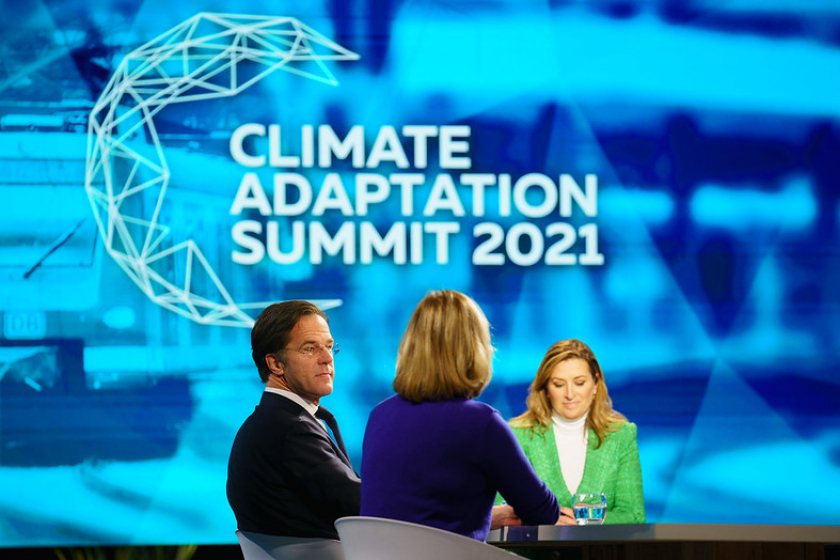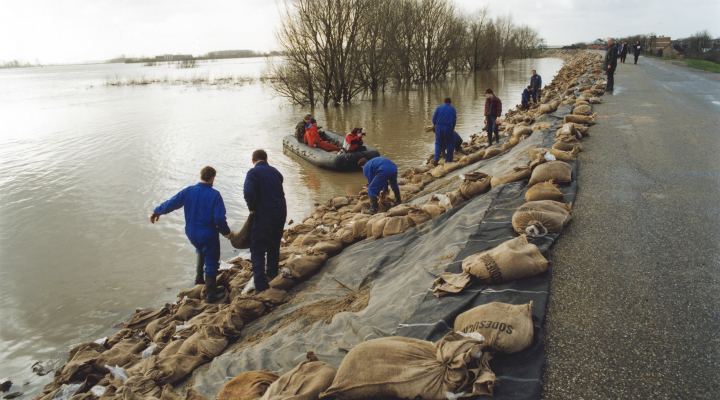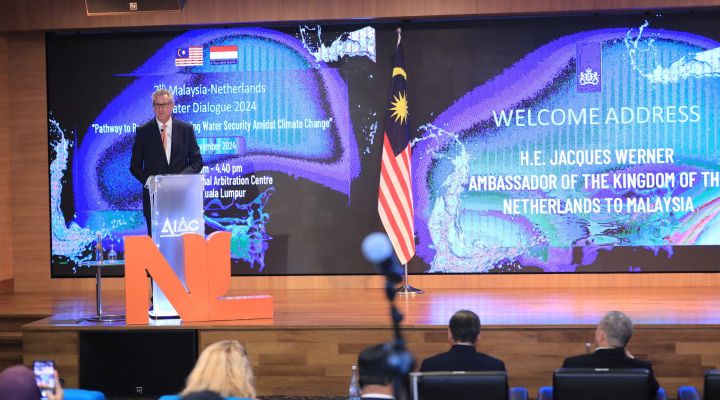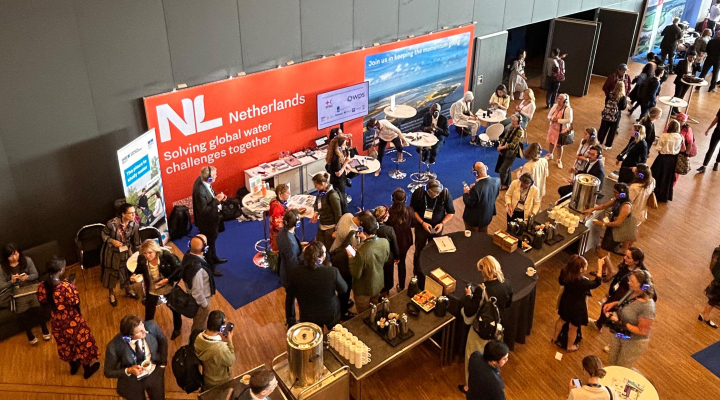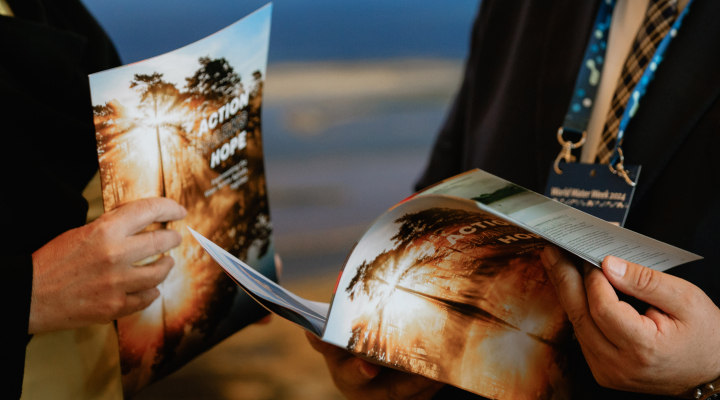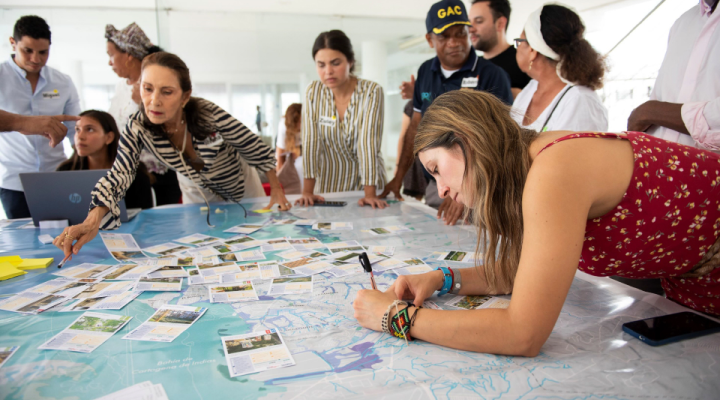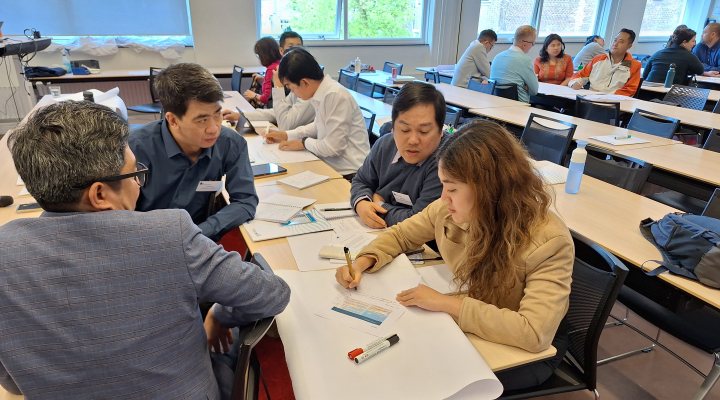The World Economic Forum identified water crisis as one of the biggest global risks. Climate change is evident in water scarcity, sea level rise, extreme storms, floods, salinisation and pollution and is affecting more and more livelihoods. The situation may be complex, but adaptation, knowledge exchange and cooperation are key.
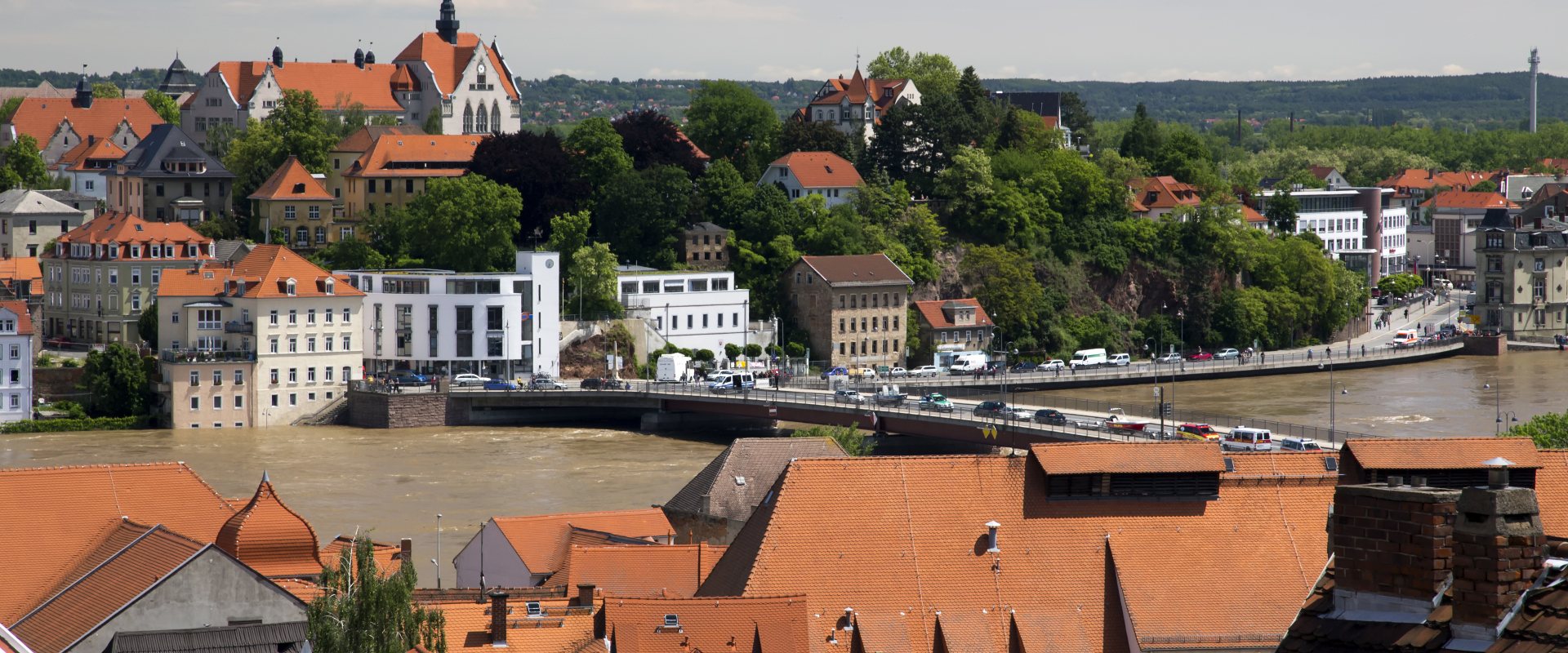
 Climate Adaptation
Climate Adaptation
Embracing nature based solutions
Even if emission reduction efforts succeed and the world meets the Paris Agreement goal of maintaining average temperature increases to below two degrees Celsius, the impacts of climate change will still be felt for decades to come. The world must adapt to this new reality.
Flooding and water scarcity could have a disastrous impact on a high-density, low lying country. This is why the Netherlands is always looking ahead, finding innovative ways to adapt to the new reality. One of the solutions can be found in nature. Across the globe, we are increasingly using nature as a model. From architecture to medicine and from energy to infrastructure, nature serves as an inspiration in a wide range of sectors. The approach is not new, but with climate change resulting in more severe water challenges such as floods and drought, the call for more resilient, nature-based solutions gets stronger. The Netherlands has been working on their 'Building with Nature' approach since decades, in the Netherlands and abroad.
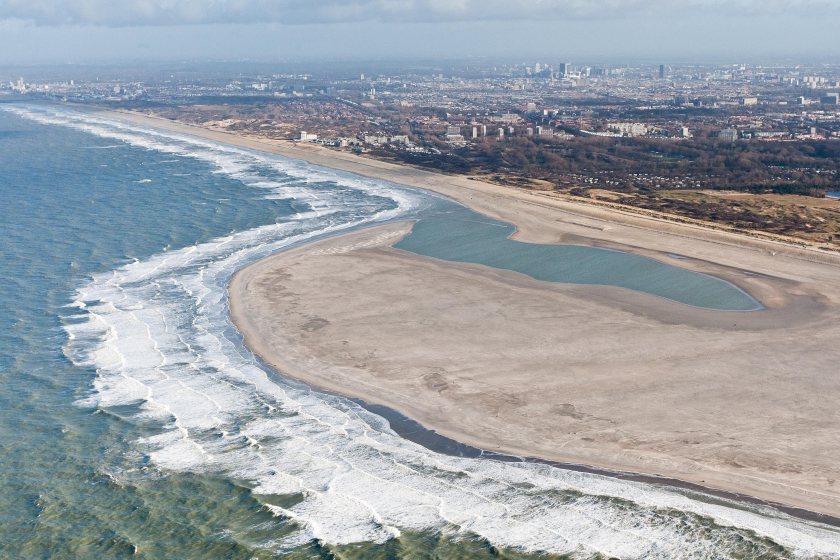
Stimulating climate adaptation
In 2018, The Global Center on Adaptation (GCA) was established, with its head office in the Netherlands, to advance bold actions that help societies across the world become more resilient to these climate-related threats. GCA acts as a solutions broker, bringing together governments, the private sector, civil society, intergovernmental bodies, and knowledge institutions that can address the obstacles that slow down adaptation action. The center builds on, improves, and accelerates breakthrough solutions that catalyse transformation at scale and at speed. One of their programs focuses on nature-based solutions as an approach to reduce costs, yield benefits for nature and enhance resilience in relation to future-proofing our infrastructure.
GCA was initiated by UN Environment and the Governments of the Netherlands, Japan and the Philippines and has established partnerships with global organisations, NGOs, governments, financial institutions, knowledge institutions and businesses to accelerate climate adaptation.
Global Adaptation Action Agenda
Current adaptation action does not match the pace and impact of climate change. If the world proceeds at the current pace, the climate impacts of today are nothing in comparison to the losses and damages the world will face in 2030.
The online international Climate Adaptation Summit (CAS) 2021, hosted on 25 January by the Netherlands Government and co-organised by the Global Center on Adaptation, created the first-ever dedicated platform of global leaders and local stakeholders aimed at placing the world firmly on a pathway to accelerated adaptation and resilience. By launching a comprehensive Adaptation Action Agenda, CAS 2021 will kickstart a transformational decade with the global cooperation and enhanced leadership needed for a climate-resilient future.
